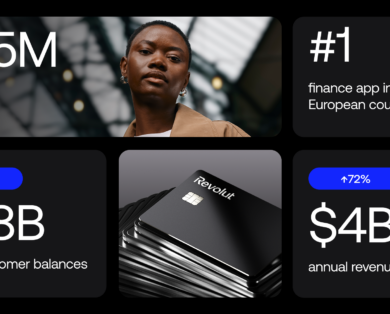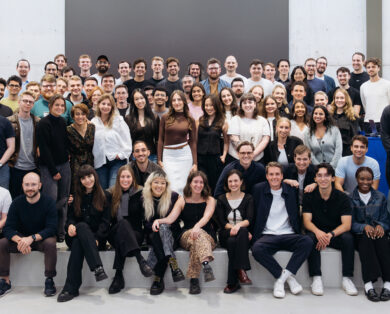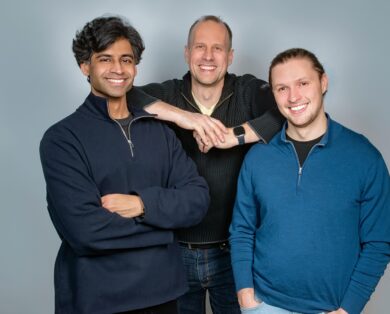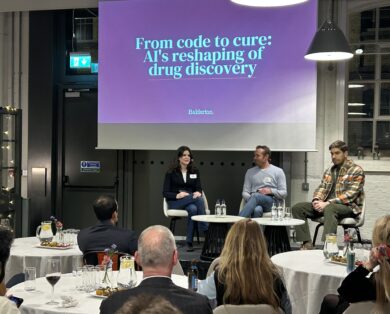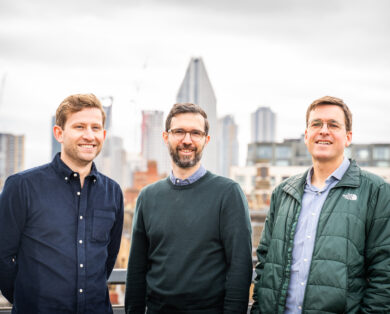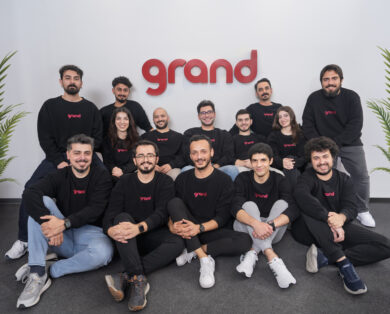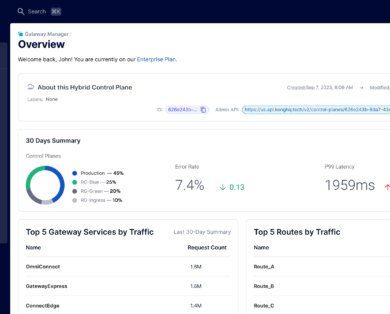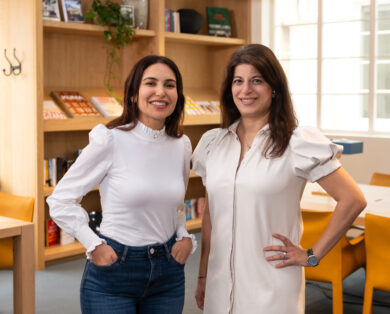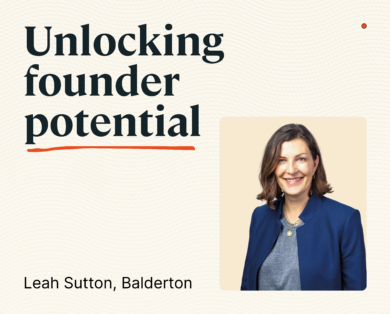- Portfolio News
- 25 April, 2025
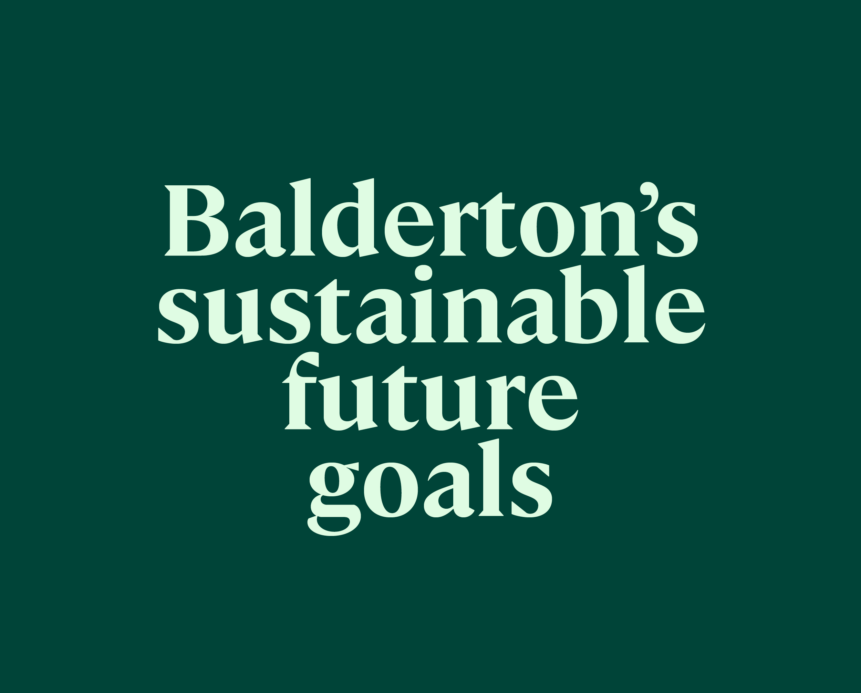
Our Managing Partner, Bernard Liautaud, spoke about the imperative of building with integrity in the foreword to our most recent SFG report. Building with integrity is not about focusing on sustainability and impact, or about becoming slower and more constrained in our approach to innovation. It reflects a fundamental duty to consider ethics and responsibility, and mitigate potential harms, as we design the technologies of tomorrow.
We believe that it is possible to foster a culture of rapid innovation without running away from its responsibility. We believe that embracing principles of responsibility and sustainability will enable the creation of stronger and more valuable companies that will exist for generations, while also contributing to a better world. And we believe our SFG framework can help the entrepreneurs in our portfolio and the wider ecosystem do just that.
Over the past five years, our SFG framework – ten goals, inspired by the UN Sustainable Development Goals – has served us well, from providing the OKR framework for our reporting scorecard, to serving as a due diligence framework in the pre-deal phase, and an engagement framework to guide the portfolio. As we take stock of everything we’ve learned and how the world around us has evolved since 2020, we have decided to revamp and simplify our framework to six goals, which we are (re)introducing below:
SFG 1: Urgent climate action
Reducing greenhouse gas emissions and adapting to climate change to protect the planet and future generations. Climate change is happening even more quickly than we feared, leaving no corner of the globe immune from its devastating consequences. The world is on a pathway to a low-carbon future, but not near fast enough, and policy intervention and regulation is kicking in to ensure that all organisations are contributing to the transition. The next generation of businesses will have to successfully decouple their growth from fossil fuels and have a good handle of their residual emissions.
SFG 2: Responsible consumption
Making mindful choices to use resources sustainably, minimise waste and pollution, and protect the natural world. Our planet’s stock of natural assets (which include geology, soil, air, water and all living things) are depleting and deteriorating at an alarming rate. Six out of our nine planetary boundaries have now been crossed, putting the stability and resilience of the Earth system at risk, and that of our economies and societies with it. It is therefore imperative for businesses to produce and consume without depleting the planet’s natural resources, being wasteful, and disrupting natural ecosystems, both in their operations and in their value chains.
SFG 3: Fairness and inclusion
Prioritising equity, respect and equal opportunities for all, celebrating diversity in all its forms. Respect of human rights is a key corporate responsibility. Acknowledging how broad and universal human rights are, and where statutory requirements already exist, we believe that operating on principles of fairness and inclusion is paramount. That is, treating employees fairly, free from any discrimination or favouritism, and giving them equal opportunity to thrive and succeed on the one hand. It’s also about making all team members feel equally valued for what they bring to the table, and celebrating diversity of thought and background. Principles of fairness and inclusion should also be applied to product design to help reach underserved markets and enhance user experience.
SFG 4: Lifelong wellbeing and learning
Promoting and nurturing personal health and wellbeing, and growth and development, to realise human potential. The fast and furious start-up culture is rife, and ultimately, not necessarily synonymous with outperformance. As illustrated by our Founder Wellbeing programme, we believe that wellbeing and personal growth should be at the heart of any individual’s career, fulfilment, and sustained performance. We look after our founders so that they can, in turn, better look after their teams, and believe that wellbeing and learning should be at the heart of the employee value proposition. Ultimately, this goal stems from the deep belief that health, wellbeing and growth are essential to get the most out of individuals, and for individuals to get the most out of life.
SFG 5: Ethical AI and digital security
Ensuring AI and other digital technologies are designed and used responsibly and transparently, respecting individual rights. The new era of Generative Artificial Intelligence (AI) that we’re in offers enormous potential to the world, but also poses significant risks to human rights. The responsibility falls on all AI builders and users to hold themselves to the highest standard of ethics with regard to what GenAI is used for and how it uses data–ensuring adherence to fundamental values of privacy, non-discrimination, and non-manipulation, and creating the necessary safeguards to allow safe usage but more vulnerable groups. We also continue to stand by our previous goal of “data rights are human rights” which commands the deployment of fit-for-purpose systems and processes to ensure that personal data is kept secure and that individuals can access and use digital technologies safely.
SFG 6: Highest standards of governance
Anchoring business culture, practices and decision-making in accountability, transparency and integrity. This final goal is both a goal in of itself and the backbone of all the other ones. Good corporate governance consists of putting principles of transparency and accountability at the heart of the system of rules, practices, and processes that manage and control a company. This system should be effective in anticipating and mitigating risks and hold the business true to its strategic objectives, statutory obligations, and broader set of responsibilities. A high-performing Board is instrumental to holding the business to the highest standards of governance.
We hope that those six goals provide a tangible framework for what it means to build with integrity, and to grow as a responsible and sustainable tech start-up in Europe. At the heart of everything we do at Balderton is our belief that the best way to change the world is to build a business. By observing those goals and pursuing opportunities to actively contribute to them, in both what they build and how they operate, founders can do just that.
 Elodie Broad
Elodie Broad 